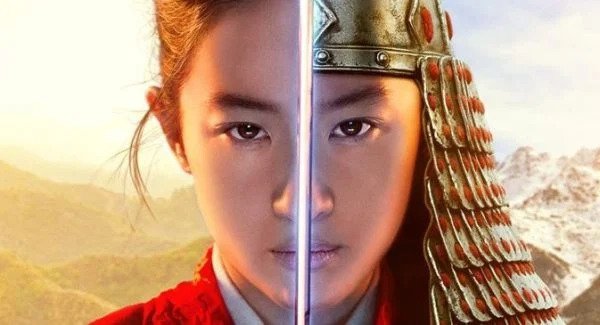Harry Gregson-Williams is a revered veteran composer with over a hundred film scores to his name. From Antz to Man On Fire and now with Mulan alongside Antoine Fuqua’s Infinite, his career hinges on much more than mere good fortune. In conversation he is subtlety self-deprecating and understated about an ability which has given us so many memorable film scores. He recently took time out to talk to Martin Carr about Mulan and the path which led him to this live action Disney collaboration.
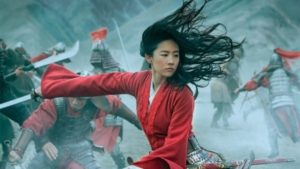
How did you go about establishing time and place through the music in Mulan?
By featuring ancient Chinese instruments over the top of a symphony orchestra and choir I felt this would best establish time and place. I had never been down this path before and was fortunate that one of my previous mentors Richard Harvey, who is a renowned composer from the United Kingdom, gave me some valuable advice on potential players of interest that would fit my requirements. The intention through this process was to lend the piece an additional level of authenticity.
Having worked with the director Niki Caro previously on The Zookeeper’s Wife, what were the creative conversations centred on for this particular project?
Right out of the gate Niki wanted this to be an epic widescreen event, which for obvious reasons fell by the way side. She was after a big sweeping score for Mulan quite the opposite of our work on The Zookeeper’s Wife which is much more personal in arrangement. She also wanted it to be faithful in certain respects to the original Disney movie, which involved planting little Easter eggs wherever possible for lifelong fans. It was quite tricky and took some time to establish the themes we wanted for this concept. One of the main things we focused on was Mulan riding into battle for the first time and removing her disguise to reveal a warrior, where I quoted a section from the song Reflection. Something I was able to do again in the sequence where Mulan is being prepared for the match maker, which featured quotes from the song Honor To Us All.
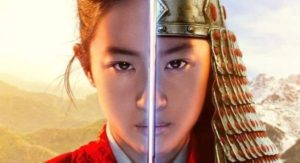
Musically how important was point of view to the film itself?
It was extremely important. Almost everything I wrote from the score was taken from Mulan’s point of view. When we first meet her, she is young and a cheeky little thing completely in touch with her powers. However, she is unsure about how she should use them or whether or not that will even be allowed. So when I set out to write her theme I needed to make sure it was a musical melody malleable enough to be both frail and unsure, yet heroic and muscular when required.
You have already touched on the research you did into ancient instruments, but were there any broader aspects in terms of location and time period that you explored before starting to do the score itself?
In terms of time period the project is set way before I get involved so from a scoring perspective one obviously nods to that. However, my main task was really to track the emotional arc that Mulan’s character takes which is quite exceptional. I didn’t feel hemmed in harmonically or in any other respects and Niki was intent on it being an emotional score, which best served the central character arc.
Having worked on both live action fantasy and animated features, what challenges did this hybrid present you creatively?
A lot of the projects I have worked on could be described as hybrids. For instance a lot of work I have done with the Scott brothers (Ridley and Tony), involved large orchestral sounds being combined with electronics. With Mulan I didn’t do that but the combination of ancient Chinese instruments and my orchestra was really important. Not only finding something harmonically which was pleasing to the ear, but also remaining faithful to our story.
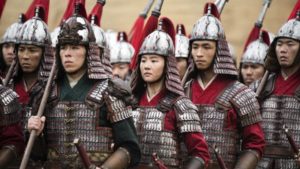
Was there anything specific to Mulan’s battle scenes which worked in parallel to your work elsewhere?
There was a certain amount of pre-production I had to do which involved huge war drums which were to be played on screen. Niki asked me to write some drum patterns that could be played on location, which would signal different elements of the Imperial army throughout the battle sequences. When the archers heard a certain drum pattern for instance they would raise their bows and then fire when it changed again. Niki put me in touch with a specialist on the subject just to establish the authenticity behind our creative intentions. Just from a technical perspective I did ask if we could have drummers who could act rather than actors who would drum.
As a composer how important was it for you that this live action version establish its own identity?
I think it was critical for me to establish a unique identity for this film. Normally I start at the piano and establish a theme with harmonic progressions which I think will serve us well. In this case that began with Mulan’s theme and once I had that to work from I called Niki and she came from the cutting room to my studio. From that point on it was all about reading body language and if she recoiled in disgust, then that would be a fair indication I wasn’t on the right track. However, if she jumps up and down on the sofa and says ‘Harry I think we have it’ which is I think what she did do then I could go from there. These things are all a process though and once you have it you have to take it, orchestrate it and deploy it within the film. One never knows if you have the right theme until you start to use it.
Obviously you are no stranger to working on large scale productions. Purely from a comparative point of view how does this particular project differ creatively, from say working with the Scott brothers on The Martian or Man On Fire?
This was a very long post production period which is great because we can just keep making it better. I started working on the movie in 2018 and we didn’t complete it until February this year. The irony being that having completed all those musical elements and delivered it to our dubbing stage for what we call ‘the final dub’, in what is basically a cinema with one vast mixing desk where all these stems sit side by side, lock down hit four days after the world premiere. Understandably this then completely changed the trajectory of the film going forward. I think it can still be thoroughly enjoyed on the television through a streaming service though, but is not quite how we mixed it because that was done with the intention that this would be an epic. If you think of the scene where Mulan rides into battle and she wins out by causing an avalanche, you can imagine how that would sound in the cinema with sub-woofers firing off left and right.

With regards to Disney’s decision to release it in a premium way through their streaming service, I personally think it’s a very savvy decision, but where do you see them taking that strategy purely from an opinion point of view?
I think the jury is probably still out because Mulan has been on Disney+ for less than a week. The main advantage is obviously that lots of people can see it otherwise this film was marooned. From my perspective I can’t be too disappointed because it is out there in the world and is being enjoyed by as many people as possible.
As you don’t have any discernible pattern in terms of your choice of project I have to ask what draws you to the material initially?
Looking at the hundred or so scores I have done you might question the choices, but in a lot of ways this business is about relationships. Had I not met Jeffrey Katzenberg through Hans Zimmer I would never have done all the Shreks. I did like a decade of Shreks which included four movies, a theme park ride and a couple of television specials. I love the names of those as well, which included a Halloween themed Scared Shrekless and Christmas themed Shrek The Halls. Then through my association with DreamWorks and Jeffrey having done Chicken Run I then went on to do a number of films for Aardman Animation. Also I can track back through Hans being able to meet Tony Scott and then did all those films with him, which naturally lead to a meeting with his brother Ridley. So there was never any grand plan involving a desire to do stories about men stranded on Mars. Through my great fortune that came to me simply through my association with Ridley, which came from my connection with Tony. It just happens that I have been able to forge relationships with terrific people, meaning that they have consistently thought of me when they are making their films.
I think having done the Tony Scott movies perhaps that is why Antoine Fuqua came to me and asked me to do The Equalizer which then lead to a sequel. I am now working on a fourth film for him and actually worked on his debut which was one of my first The Replacement Killers. Right now I am just trying to finish off Infinite for Paramount. So you might wonder why I chose to do a movie about reincarnation, which is basically what Infinite is about, I didn’t really make that choice it chose me. Does that make sense because you have wonder how I got from Antz to Man On Fire.
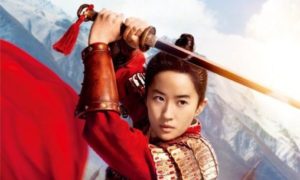
I just have to say hand on heart that Man On Fire is a personal favourite of mine and an amazing film.
I can tell you Man On Fire left an indelible impression on me and it came at quite a tricky time, because I had left the warmth and relative safety of the Zimmer compound. I came over to the US in 1995 as an apprentice for Hans and the first film I worked on for him was Muppet Treasure Island. My relationship with him is still stronger than ever but by the time Man On Fire came about I had flown the nest so to speak, which was necessary because Hans casts a big shadow. We had a conversation one night when I were working on Spy Game at two in the morning over a cigarette. Hans was filled with anxiety about something he was doing, perhaps it was Gladiator, which is what made our relationship special because we were sort of going through the same thing.
Up to that point I had worked with Tony on The Fan and Enemy of the State alongside Hans Zimmer and Trevor Rabin respectively. Whenever I look back on that film I always remember how much tension I felt coming to my studio every day. Seeing a mirror image of my own daughter in Dakota Fanning up on screen perpetually in peril the whole time. Alongside that working with Tony who was very loyal, sensitive yet a huge task master it all felt pretty terrifying. I think that comes out in the music which has quite a lot of edge to it.
One other strange thing about that project is that unlike a lot of directors Tony frequently wanted to be in the back of my room while I was composing, which was a little unnerving. I remember Hans Zimmer telling me very early on when I was just starting out with him, that I needed to get used to undressing in front of people. I remember saying to him ‘what?! I thought we are talking about composing here’ but his point was that in order to let people into our worlds we have to be completely open and collaborative. We are not just writing some music, passing it to them and saying there you go. And of course a lot of the time we don’t have a common language in order to discuss these things and there needs to be some middle ground.
Tony and Ridley both went to art school and famously storyboard their movies completely down to camera angle and everything else. I remember discussing this with Hans and how Ridley would talk in terms of tone, colour and texture from an artist’s perspective. He paints canvases after breakfast most mornings by the way. Musically one can also translate these things into a common language which allows you to fulfil the vision for their films.
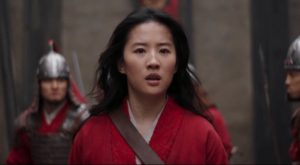
Describe for me your perfect Sunday afternoon.
At the moment my perfect Sunday afternoon would be spending time with at least three of my five children. Two of them are at university so have flown the nest a little bit, but spending time with the other three either on our bikes at Venice beach or outside at home would be the ideal.
Thank you for taking the time to talk with Flickering Myth and take care.
Mulan is available to stream exclusively on Disney+ now.



